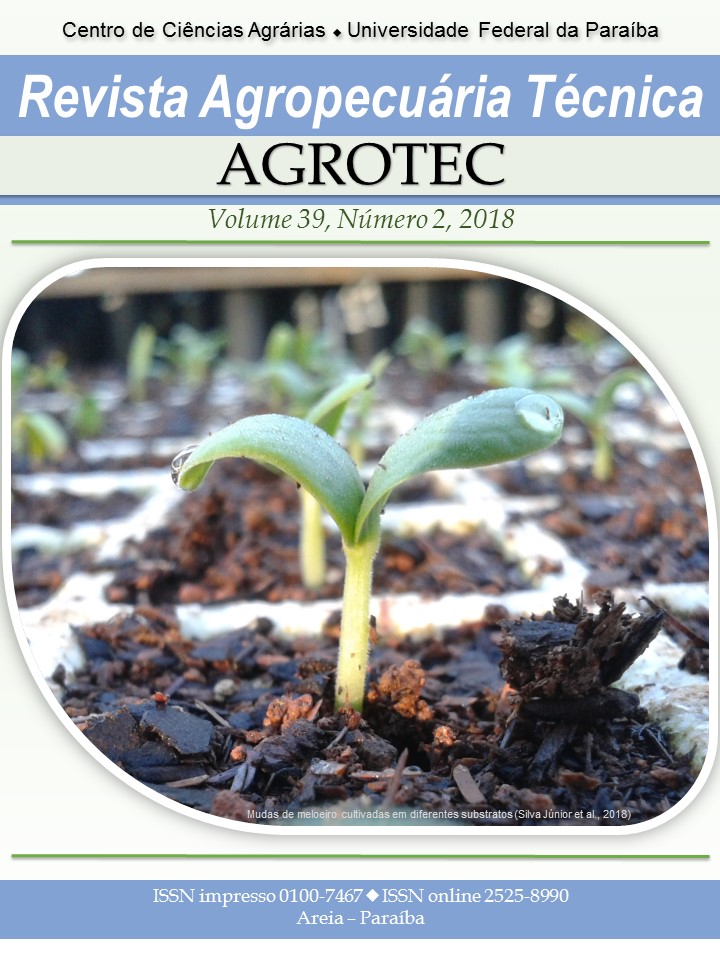Cattle manure as an alternative substrate in melon seedlings production
DOI:
https://doi.org/10.25066/agrotec.v39i2.37234Keywords:
Cucumis melo L., Seedling nutrition, Muskmelon, Yellow melonAbstract
Alternatives to conventional methods of seedling production should be sought, aiming to increase quality and return to the producer. In this context, the residues of livestock activity may appear as options to the farmer. The objective of this work was to evaluate the use of cattle manure as an alternative substrate in combination with commercial substrate for the production of melon seedlings. For the composition of the experiments, two varieties of melon (Cantaloupe and Amarelo) were sowed in polyethylene trays of 128 cells, with five different substrates: 100% cattle manure, 100% commercial substrate and three mixtures of bovine manure (EB) and commercial substrate (SC) (75/25, 50/50, 25/75, respectively), composing the five treatments, with four replicates in randomized blocks. For Cantaloupe melon, cattle manure provided significant increases in the biometric characteristics of the seedlings, high contents of chlorophylls and dry mass of shoot and root; the treatment 75% EB + 25% SB presented similar results for the levels of chlorophylls, plant height, leaf number, root length and Dickson quality index. For Amarelo melon, bovine manure did not present the same results, with no difference between treatments for Chlorophyll a and total, plant height, leaf number and root length. The tanned cattle manure has the potential to partially or completely replace the commercial substrate in the production of melon seedlings.


